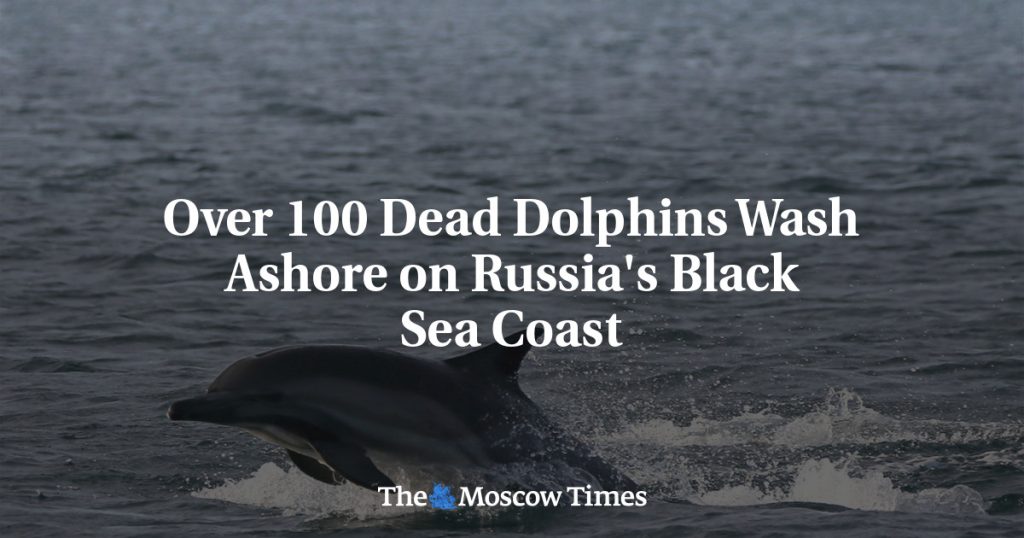In recent weeks, nearly 140 dolphins and other marine mammals have been found dead on the shores of Russia’s Black Sea coast, according to the dolphin rescue and research center Delfa. The center reported that a total of 137 cetaceans, which includes whales, dolphins, and porpoises, have died in the past month, with 101 deaths occurring in the last week alone. Many of the animals showed signs of being caught in fishing nets, including deep scratches, missing fins or tails, and torn stomachs.
Delfa suggested that some of the dolphins may have been entangled in ropes tied around rocks, which could have been caused by fishermen trying to dispose of their bycatch. While the center acknowledged that fishermen do not intentionally kill dolphins, it emphasized the seriousness of the situation, stating that the high number of deaths is impossible to ignore. It warned that if an alternative is not found or fishing rules are not revised, the Black Sea could be left without dolphins.
The rescue center also raised concerns about the authorities doubling the fishing quota for flounders in southern Russia’s Caucasus region by 2024. According to Delfa, flounder nets are particularly dangerous for cetaceans, making them more susceptible to getting caught and dying as bycatch. The center urged for the need to find alternatives or revisit fishing rules to prevent further deaths and protect the marine mammal population in the Black Sea.
The alarming number of dolphin deaths has sparked widespread concern over the conservation and protection of marine life in the Black Sea. Delfa’s reports have shed light on the detrimental impact of fishing activities on cetaceans and the urgent need for stricter regulations to prevent unnecessary deaths. The rescue center’s findings have prompted calls for action to address the issue and prevent further harm to the fragile ecosystem of the Black Sea.
Environmental organizations and conservationists have also expressed their outrage over the recent wave of dolphin deaths, with many calling for immediate action to address the root causes of the problem. The increase in fishing quotas and the dangers posed by fishing nets have been identified as key factors contributing to the high mortality rate among cetaceans in the region. Efforts are being made to raise awareness about the importance of protecting marine life and advocating for sustainable fishing practices to ensure the long-term survival of dolphins and other marine mammals in the Black Sea.
In response to the crisis, authorities are being urged to take swift action to address the issue and prevent further harm to the marine ecosystem. Environmental groups are calling for stricter enforcement of fishing regulations, as well as the implementation of measures to reduce the impact of fishing on marine wildlife. The recent spate of dolphin deaths has highlighted the urgent need for conservation efforts to protect vulnerable species and preserve the biodiversity of the Black Sea. By working together to address the root causes of the problem, stakeholders can help ensure a sustainable future for marine life in the region.


